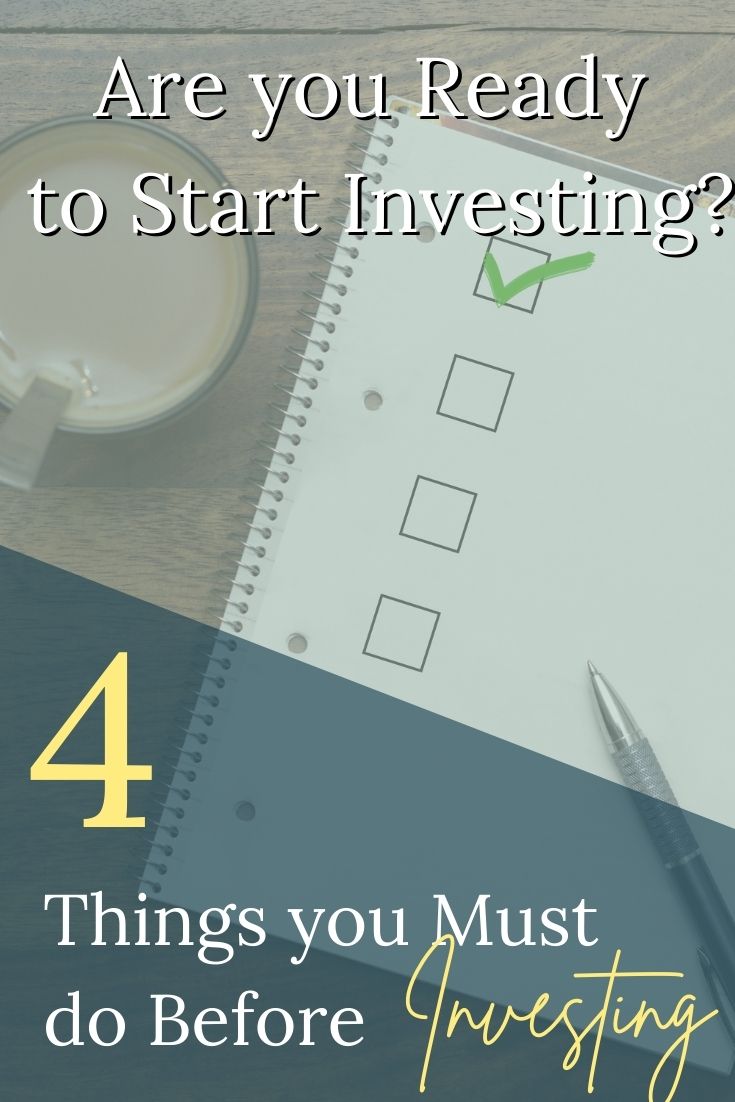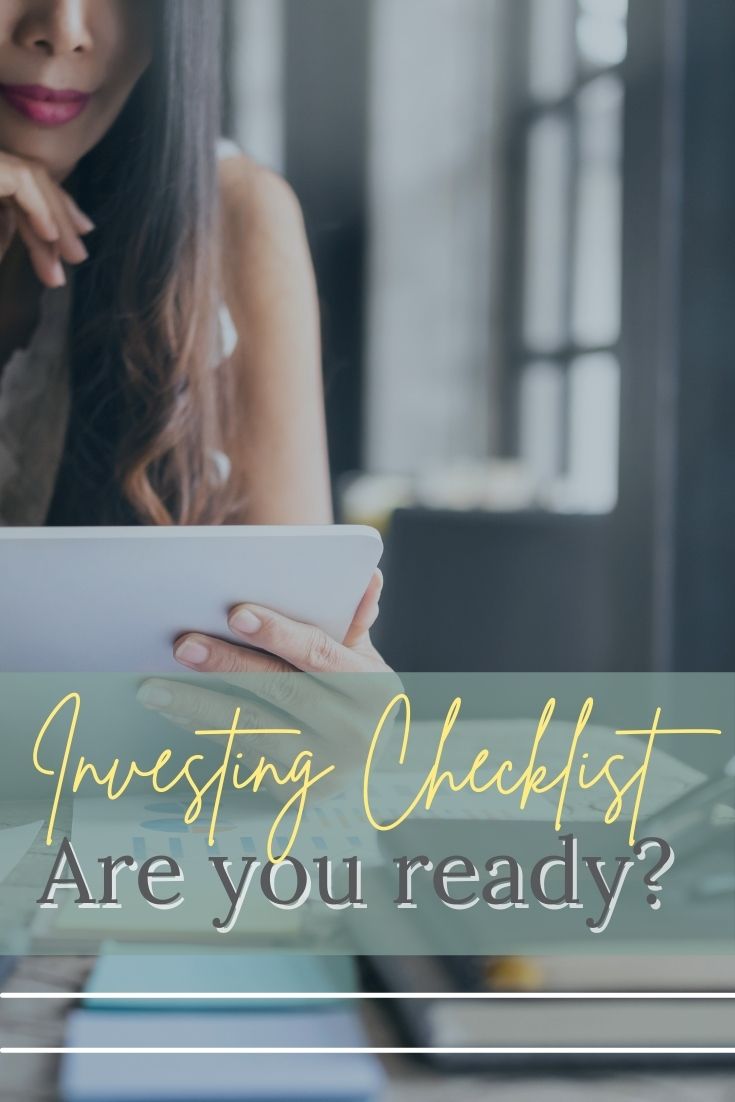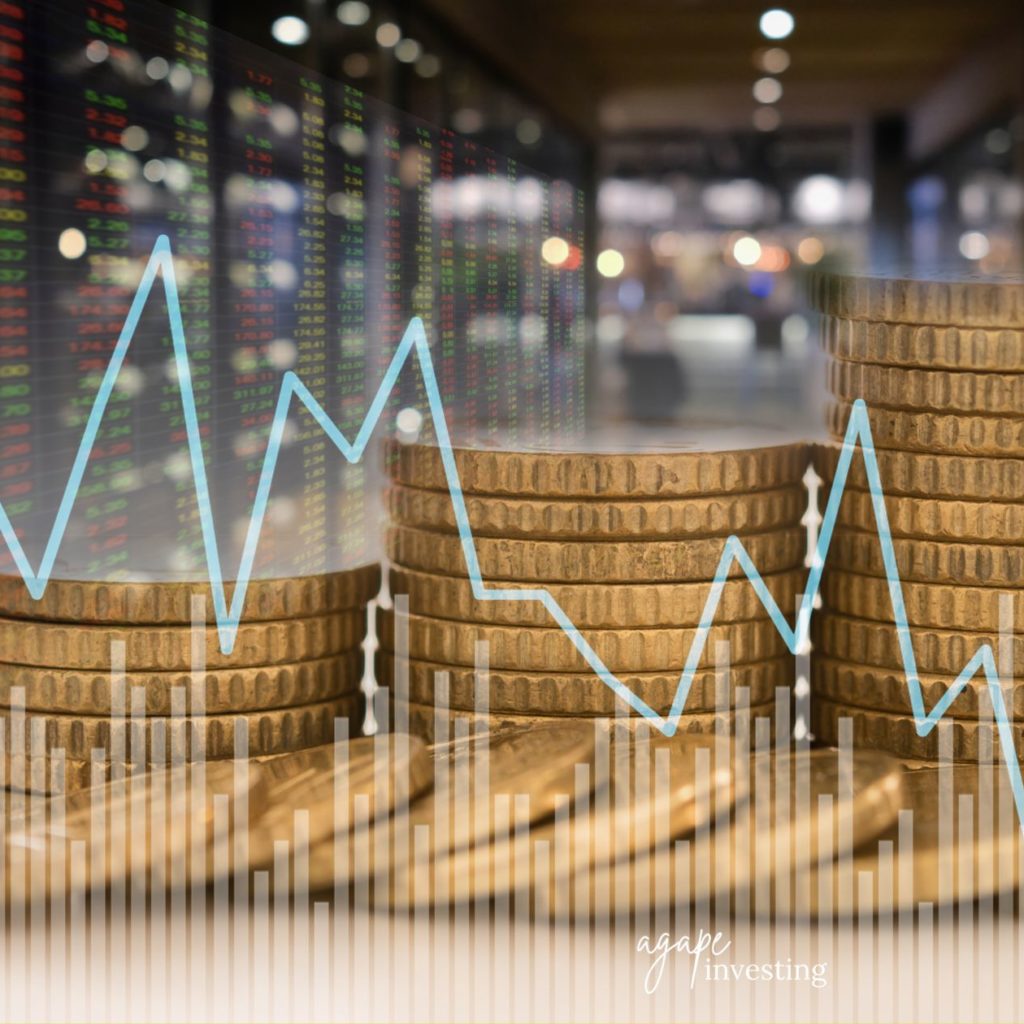This post may contain affiliate links, which help us generate revenue so that we can keep producing awesome content for you. We want to thank you from the bottom of our hearts for using our links and giving us the opportunity to share a sliver of this great big world with you. As an Amazon Associate, I earn from qualifying purchases.
Are You Ready to Start Investing? | 4 Things You Must Do Before Investing
Investing your money is the simplest way to achieve financial independence. Every financial expert would agree that it is advantageous to start investing while you are young because compound interest works best when it is given time to grow.
However, just because most people say that you need to start investing early, doesn’t mean you are necessarily ready to start investing now. There are 4 things that I recommend you must do before investing seriously.
Many investing experts agree that these 4 things need to happen before you get serious about investing. Check out books like Broke Millennial Takes On Investing and Dumb Things Smart People Do With Their Money with a more detailed breakdown of this checklist.

Are You Ready to Start Investing Checklist
Before you get started investing, here are a few items that are crucial to get checked off first, and why they are so important to do before investing. So let’s fine if you are ready to start investing!
1. 3-Month Emergency Fund Minimum
No matter where or how you invest your money, there will always be an element of risk. You could lose a big chunk of your money overnight. If that happens, it is crucial that you still have some savings NOT invested so you can still cover emergencies.
Having an emergency fund that is not invested and is tucked safely away in a high interest savings account is very important before you start investing seriously. That way, when the market takes a downturn (and it will at some point) you will not have to worry about whether or not you will be able to pay your rent, or for a doctor’s visit when you get sick.
I recommend having a minimum of 3 months worth of living expenses saved in your emergency fund when you begin to invest seriously, but the exact number and amount is a personal decision based on the “level of risk” you have in your life, as well as your own level of risk tolerance.
If you decide to invest in something like real estate, it is even more important to have extra cash reserves on hand.
2. High Interest Debt Paid Off
You’ll notice that I did not say “pay off all debt” but rather, “pay off high interest debt.” I don’t think that you need to have all of your debt paid off before you get serious about your investing. I do, however, recommend taking care of all your debt that has a high interest rate.
High interest is anything above 6%. Why that number? Because the average interest earned on money invested in the market is about 7%. If you have debt that is 7% or higher, your money would be put to better use paying off your debt rather than being invested.
So that car loan that has an APY of 10%, that personal loan you took out at 12%, and that credit card balance that has been hanging over your head with 19% interest… PAY THOSE OFF!
Learn more about whether you should start investing while in debt here.
3. Not Living Paycheck to Paycheck
Similar to making sure you have an emergency fund, it is beneficial to have a small buffer of cash in an easily accessible checking or savings account before investing seriously. When tying up your savings in the market, not only is it a little bit more difficult to get it out right away, but again, there is an element of risk that you could lose all of that money!
If you are still living paycheck to paycheck, it will be difficult (not impossible) to dedicate a portion of your income towards investing. Especially if part of that reason you are living paycheck to paycheck is because you have a lot of debt.
Before investing seriously, get in the habit of tracking your money to evaluate your current spending trends. Then create a spending plan for your money and see if you can stick to it for a while.
Here are some budget spreadsheets to help you get started.
Looking for ways to reduce your monthly spending? Check out these 25 simple things you can do to start saving money today.
4. Educate Yourself
Educating yourself on your risks, options, and opportunities for investing is an important part of your wealth growth journey. This is a step that many young adults skip as they jump into the world of investing, and I think that is a big mistake.
There are a lot of trends out there that sound really great at first, but might end up being a disaster a year down the road. Make sure you understand what you are getting into before you send your money somewhere.
Here are a few things I’d recommend learning about before investing:
- How risky an investment is
- The different types of accounts you can invest in
- How you can invest in the stock market
- What fees are associated with your investment
- Become familiar with popular brokers by reading axitrader reviews.
As you work on completing the other items on the checklist above, take the time to learn more about your investing options. Your education can start before you are ready to start investing seriously. That way, the moment you are ready, you will know exactly where your money will be invested.

Are There Exceptions?
Of course, with everything in life, this checklist comes with some exceptions. The biggest exception that I will address is your employer sponsored 401(k) match.
An employer sponsored 401(k) match is practically FREE money. If you have a match, this means that your employer contributes a certain amount to your 401(k) based on the amount of your own annual contribution. Typically, employers match a percentage of your contributions, up to a certain portion of your total salary.
In most cases, I would recommend investing enough into your 401(k) to obtain your full match potential from your employer. Otherwise, it is like leaving money on the table!
Obviously, this checklist is just a guideline for you to follow and not specific investing advice. I don’t know you, your personal situation, or your goals. Take what you want from this checklist, but understand that even if you follow it, it won’t guarantee financial success. But it might at least get you on the right track.
Read to Get Started Investing?
Here are a few options to consider as you look into where to invest your money:
- Set up a meeting with your companies 401(k) provider
- Open your very first IRA
- Passive investing my favorite real estate investment platform
So are you ready to start investing?
Which of these 4 things do you need to do before investing?
Is there an item on the checklist that you need help with?
Going through this checklist is a lot easier with someone who can help you with your personal situation. I’d love to help you learn more about how to accomplish each of these tasks so you can start building wealth for your future and your goals.
Book a free coaching call here!

You May Also Like
3 BIG Money Mistakes Keeping You From Building Wealth
13 Bad Money Habits You Need to Break Today
5 Ways You Can Start Learning Your Real Estate Market
What Does The Bible Say About Investing?



